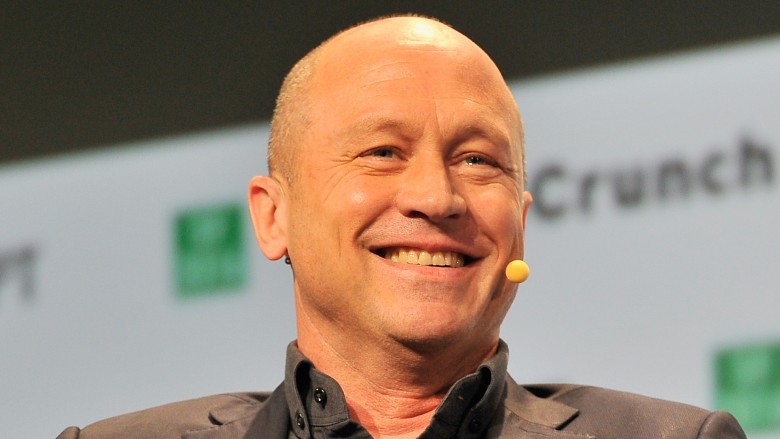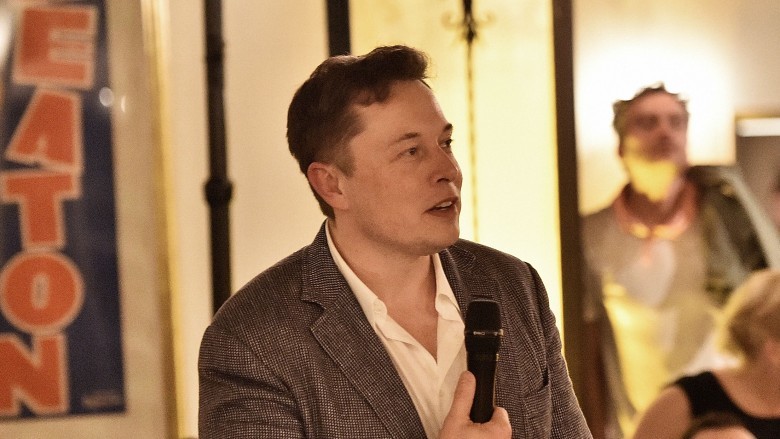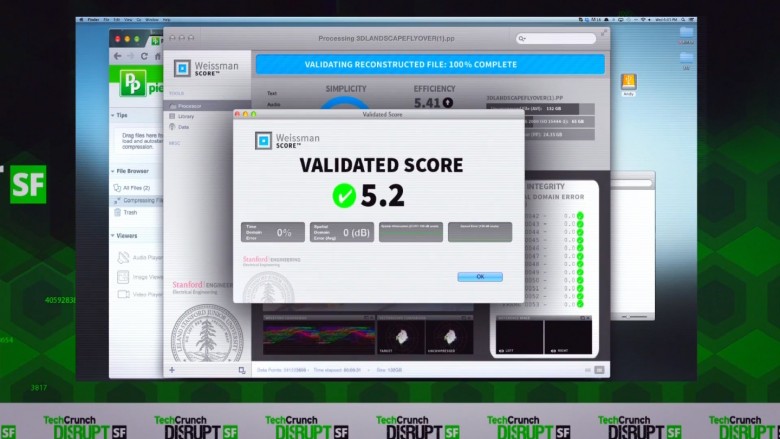The Untold Truth Of Silicon Valley
Silicon Valley is one of television's hottest sitcoms. It's set in the high paced world of being, well, a freaking nerd. Finally, some real reality! What do we know about all that math and computer design and tech speak? Absolutely nothing, but it's still really really funny. And interesting as all get out ...
It's based on Mike Judge's experience working in Silicon Valley
Now, you might know that Silicon Valley was co-created by Mike Judge (you know, the dude who made Beavis and Butt-Head, Office Space, and King of the Hill) but you probably didn't know the show is, in part, autobiographical. See, when Judge first started out, he was a physics major who had programmed a "microprocessor-controlled car." He later got a job working on the programming for F-18 fighter jets. This means Judge has both Beavis and Butt-Head and F-18 FIGHTER JETS on his resume — why isn't he President?
Not long after that, he moved to Silicon Valley, where he got a soul-crushing job that he pretty much copy/pasted for Office Space. Seriously, there was even a man obsessed with not letting anyone borrow something he had (like a stapler), a group that loved Run DMC (like the white programmer who is obsessed with rap) and also all of the horrible soul-crushing evil. No word on whether or not he worked with a Michael Bolton. Eventually, Judge gave up on the job, made a animated short called Office Space, and the rest was history. Until he decided to head back to Silicon Valley to skewer it, again.
Elon Musk seems to hate it
Now, despite how the show was directly inspired by Judge's own experiences in the ... valley of ... silicon, not everyone who lives there liked it. Elon Musk, for one, had seen the premiere and kind of hated the show. Later he recanted and said that he didn't actually hate it, but it just wasn't at all representative of real-life in the Silicon Valley. Wait, isn't Elon Musk too busy attempting to be real Iron Man and blow up asteroids for their sweet, sweet minerals to watch television shows? Like the baby at the end of 2001: A Space Odyssey, we assumed he had evolved past such petty human concerns.
For the record, though, at least some people in Silicon Valley love the show, and they think it's a good representation of what life is like in the ... metallic desert? (Why doesn't Silicon Valley have any cuter names?) Of course, what do those scientists know? They're not Elon Musk.
Star TJ Miller called a woman a derogatory term when hosting a tech award show
You know the number one danger of starring in a tech-inspired sitcom? People in tech take notice of you. Now, before we get too far into this, we have to warn you: this story, in addition to dealing with horrible sexism, also exposes you to the horrifying fact that tech people throw themselves award shows. Yes, apparently it's not just actors who are so vein as to hand themselves golden statues, but tech people too.
Now, like actor award shows, tech award shows need to be hosted by someone charismatic and charming. However, it's tech, so the odds of that actually happening are rather rare, so they get stuck with TJ Miller. While you might think he's pretty awesome in Silicon Valley — because he IS awesome on it — in real life, he's apparently kinda not the greatest person. While hosting the Crunchies — which is what programmers adorably call their big award show — in quick succession he called someone the b-word, made fun of someone for being Asian, and then called someone else the b-word! Don't worry, a few seconds later he made it better by ... calling another person the b-word. Looks like the Crunchies aren't as earthy-crunchy as their name made them seem.
The real math of "clocking yourself in"
At the end of the first season of Silicon Valley, the gang finds themselves in a bit of hot water, and starts joking about the audience doing ... something to one another. How do we put this? The gang is ... discussing the audience engaging in ... hand-to-genital combat with the person next to them. Manual labor, if you will.
But because the gang are all massive programming nerds, it doesn't take long until they attempt to deduce the actual mathematics behind how an entire room of people could best perform these ... vigorous hand exercises, for maximum satisfaction. Now, since this show is for, and created by, giganto nerds, they couldn't just come up with some random BS math. Instead, the writers contacted Stanford mathematicians to help them create an actual equation for how to calculate the exact rate of the ... errhm ... idol waxing. We'd explain the "Tip-to-tip efficiency: a model for male audience stimulation" (yes, that's what they called it), but the damn paper is twelve pages long. They spent 12 wordy, numbers-and-figues-heavy, super-scientific-looking pages breaking down how best to, uhhh, heighten the mood in the room. So instead, we propose an easier solution to exciting an entire room, one both math geeks and non can get behind: just hire Idris Elba to stand on stage and smile.
The show created the now-professionally-used Weissman Score
The finale of the first episode revolves around the gang creating a compression tool that manages to compress huge files without degradation. That's what the entire show is about, actually — the use of this awesome compression tool. Now, in the show, the tool's usefulness is measured by something called the Weissman Score. Here's the thing though — the Weissman Score didn't exist before it was used in the show. That's right, it was created for the show.
Of course, that's pretty cool, but it's not Grunge article cool. But you know what throws it over the top? The fact that it's now used in real-life! Yes, something created for a show about stoner programmers is now a real-life tool used in real-life! Of course, that's not super-surprising, considering the fact that it was co-created by two Stanford mathematicians. So basically, the show was inspired by Mike Judge's experiences in Silicon Valley, and then the show Silicon Valley looped around and inspired what is actually happening in Silicon Valley! Siliconception.




